第24章
The Edinburgh sermon, though doubtless softened in outline in these later years, is still a more carefully built discourse than one ordinarily hears out of Scotland, being constructed on conventional lines of doctrine, exposition, logical inference, and practical application. Though modern preachers do not announce the division of their subject into heads and sub-heads, firstlies and secondlies and finallies, my brethren, there seems to be the old framework underneath the sermon, and every one recognises it as moving silently below the surface; at least, I always fancy that as the minister finishes one point and attacks another the younger folk fix their eagle eyes on him afresh, and the whole congregation sits up straighter and listens more intently, as if making mental notes.
They do not listen so much as if they were enthralled, though they often are, and have good reason to be, but as if they were to pass an examination on the subject afterwards; and I have no doubt that this is the fact.
The prayers are many, and are divided, apparently, like those of the liturgies, into petitions, confessions, and aspirations; not forgetting the all-embracing one with which we are perfectly familiar in our native land, in which the preacher commends to the Fatherly care every animate and inanimate thing not mentioned specifically in the foregoing supplications. It was in the middle of this compendious petition, `the lang prayer,' that rheumatic old Scottish dames used to make a practice of `cheengin' the fit,' as they stood devoutly through it. "When the meenister comes to the `ingetherin' o' the Gentiles,' I ken weel it's time to cheenge legs, for then the prayer is jist half dune," said a good sermon-taster of Fife.
The organ is finding its way rapidly into the Scottish kirks (how can the shade of John Knox endure a `kist o' whistles' in good St.
Giles'?), but it is not used yet in some of those we attend most frequently. There is a certain quaint solemnity, a beautiful austerity, in the unaccompanied singing of hymns that touches me profoundly. I am often carried very high on the waves of splendid church music, when the organ's thunder rolls `through vaulted aisles' and the angelic voices of a trained choir chant the aspirations of my soul for me; and when an Edinburgh congregation stands, and the precentor leads in that noble paraphrase, `God of our fathers, be the God Of their succeeding race,' there is a certain ascetic fervour in it that seems to me the perfection of worship. It may be that my Puritan ancestors are mainly responsible for this feeling, or perhaps my recently adopted Jenny Geddes is a factor in it; of course, if she were in the habit of flinging fauldstules at Deans, she was probably the friend of truth and the foe of beauty, so far as it was in her power to separate them.
There is no music during the offertory in these churches, and this, too, pleases my sense of the fitness of things. It cannot soften the woe of the people who are disinclined to the giving away of money, and the cheerful givers need no encouragement. For my part, I like to sit, quite undistracted by soprano solos, and listen to the refined tinkle of the sixpences and shillings, and the vulgar chink of the pennies and ha'pennies, in the contribution-boxes.
Country ministers, I am told, develop such an acute sense of hearing that they can estimate the amount of the collection before it is counted. There is often a huge pewter plate just within the church door, in which the offerings are placed as the worshippers enter or leave; and one always notes the preponderance of silver at the morning, and of copper at the evening services. It is perhaps needless to say that before Francesca had been in Edinburgh a fortnight she asked Mr. Macdonald if it were true that the Scots continued coining the farthing for years and years, merely to have a piece of money serviceable for church offerings!